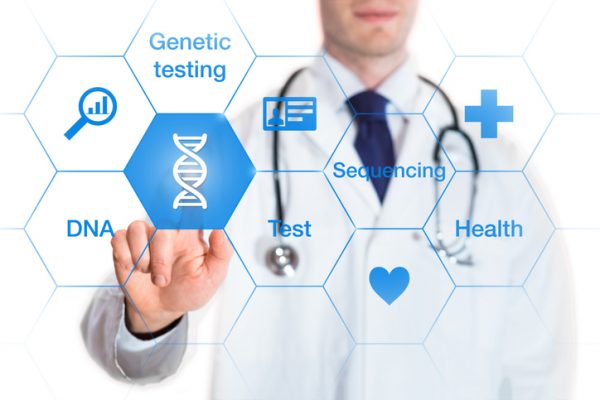
With data-driven insights, health systems can identify and attack specific conditions in the early stages of the disease, when the likelihood of good outcomes is highest.
To this end, Evanston, Illinois-based NorthShore University HealthSystem is partnering with Sema4, a company focused on providing genomic and clinical data insights.
Together, the provider and Stamford, Connecticut-based analytics firm will launch a genomics program across NorthShore’s six hospitals and 900-physician multispecialty group practice. Through the program, NorthShore clinicians will have access to Sema4’s genomic solutions for hereditary cancer, cardiovascular diseases, pharmacogenomics and rare diseases.
Specifically, the program will focus on understanding how changes in DNA can influence the risk of developing future health conditions, said Dr. Peter J. Hulick, director of the Mark R. Neaman Center for Personalized Medicine at NorthShore, in an email.
“By understanding a person’s risk, we can better care for a patient by changing how and when they are screened for a particular condition,” he said. “This insight can help us provide more targeted therapy that is more likely to work and will have less risk for side effects.”
NorthShore and the data company will combine clinical information with genomic analysis to leverage the predictive models developed by Sema4.

A Deep-dive Into Specialty Pharma
A specialty drug is a class of prescription medications used to treat complex, chronic or rare medical conditions. Although this classification was originally intended to define the treatment of rare, also termed “orphan” diseases, affecting fewer than 200,000 people in the US, more recently, specialty drugs have emerged as the cornerstone of treatment for chronic and complex diseases such as cancer, autoimmune conditions, diabetes, hepatitis C, and HIV/AIDS.
For example, the predictive models for cancers will offer clinicians a more comprehensive view of their patients, providing insight into tumor progression and how best to diagnose or treat them, said Glenn Farrell, chief marketing officer and executive vice president, research strategy at Sema4.
Aside from chronic conditions like cancer and heart disease, plans for the future could also involve examining the factors that may influence a Covid-19 patient’s disease course and severity.
“We are in the early days of understanding the long-term implications of Covid-19 and by more fully tracking both a patient’s care journey within the NorthShore health system, combined with the insights from our information-driven genomic analysis, we can explore how this disease is impacting different people over time, and inform treatment options,” Farrell said.
In addition to enhancing clinical care, the organizations aim to make genomics more accessible through the program.
NorthShore plans to subsidize genetic testing costs for patients who do not have the financial resources to pay. Earlier this month, the provider began offering the program to patients of Swedish Hospital, a safety net hospital in Chicago. This was made possible through a gift from the Swedish Hospital Foundation.
Further, the health system aims to better understand barriers to accessing genomic care, including cultural perceptions, social determinants of health and financial barriers, NorthShore’s Hulick said.
Photo: NicoElNino, Getty Images













